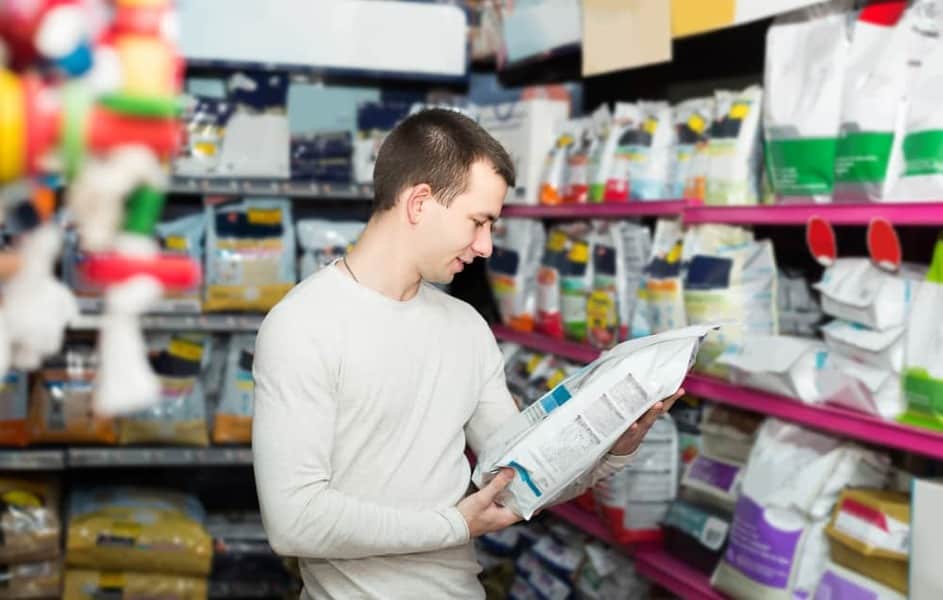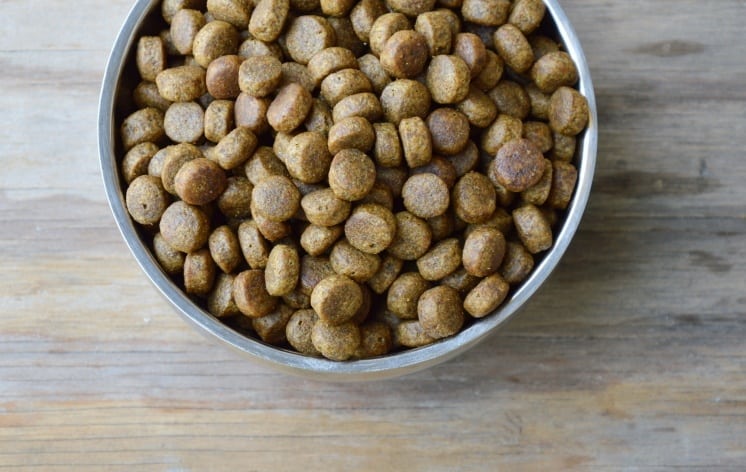“This post contains affiliate links, and I will be compensated if you make a purchase after clicking on my links.”

by Sean Green
There is a great deal of misinformation out there regarding what should and should not be included in a healthy diet for dogs. In fact, if you ask three different veterinarians about the best ingredients for dog food, you will get three different answers. All you can really do is educate yourself as much as possible and then make a decision for yourself. This is particularly true in the case of synthetic supplements used to ensure the proper nutritional balance of dog food products.
What Are Chelated Minerals?
A mineral is an inorganic compound that occurs naturally. Because they are inorganic, minerals are not produced by plants or animals but they can be absorbed by plants – that is how certain foods come to contain different minerals. Your dog requires certain minerals in his diet in order to maintain proper health and wellness and they can be divided into two categories – minerals and trace minerals. The most important minerals that your dog needs include calcium, phosphorus, magnesium, and sulphur.
A balance of calcium and phosphorus in your dog’s diet helps him to grow and maintain healthy bones. Magnesium plays a role in healthy metabolism and cell action while sulphur protects your dog’s joints and helps with protein synthesis. In addition to these four main minerals, your dog also needs smaller amounts of other minerals, known as trace minerals. These include iron, copper, cobalt, zinc, selenium, manganese, and iodine. If the ingredients in your dog’s food aren’t adequate in natural mineral content, the pet food manufacturer will add synthetic mineral supplements to make up the difference.

Are Chelated Minerals Good for Your Dog?
You probably won’t be surprised to learn that natural forms of essential minerals are more biologically valuable for your dog than synthetic forms. This simply means that your dog’s body is better able to absorb and utilize minerals when they come from natural sources like fruits and vegetables than from synthetic supplements. But that doesn’t mean that synthetic mineral supplements are useless – in fact, some of them offer excellent absorption. These are called chelated minerals. You will see them in the ingredients list on your dog’s food in forms like “zinc proteinate” or “copper chelate”.
A chelated mineral is simply a mineral that has been chemically bonded with an amino acid (a protein). Depending on the specific type of mineral, this generally enhances the absorption of the mineral for your dog. For example, chelated forms of iron, selenium, and chromium mineral supplements are shown to offer better absorption than non-chelated forms of the same minerals. Other minerals, however, such as copper and zinc, offer very similar absorption rates in both chelated and non-chelated form. There are also some minerals, like magnesium and calcium, that are so easily absorbed that chelation is completely unnecessary.
Whether or not chelated minerals are good for your dog is something of a loaded question. Natural forms of essential nutrients, both vitamins and minerals, are always more biologically valuable than synthetic forms, but that doesn’t mean that chelated minerals are not valuable. In the end, what really matters is that your dog’s food offers complete and balanced nutrition through the use of high-quality and digestible ingredients.
The bottom line is that the addition of chelated minerals to a dog food product is never a bad thing. This is evidenced by the fact that most low-quality pet foods use standard synthetic supplements. The use of chelated minerals doesn’t necessarily guarantee that a product offers high nutritional quality, but it is definitely a step in the right direction.
Sean Green is the founder of DogFood.Guide and a loving parent to three children and a dog named Ace. In 2010, Sean put both his professional experience and his personal love for pets to work and has since become a leading developer of numerous pet websites.
























Todd
says:Just out of curiosity, are you aware of research showing if chelated coppers are playing a role in the increase of Copper Storage Disease in dogs? Just wondering if what I’m hearing has any validity to it. Thanks for your article and time in responding to this question.